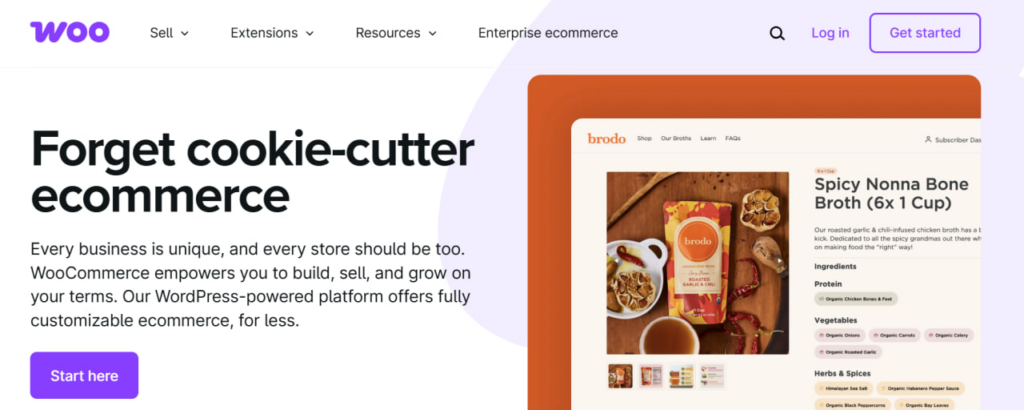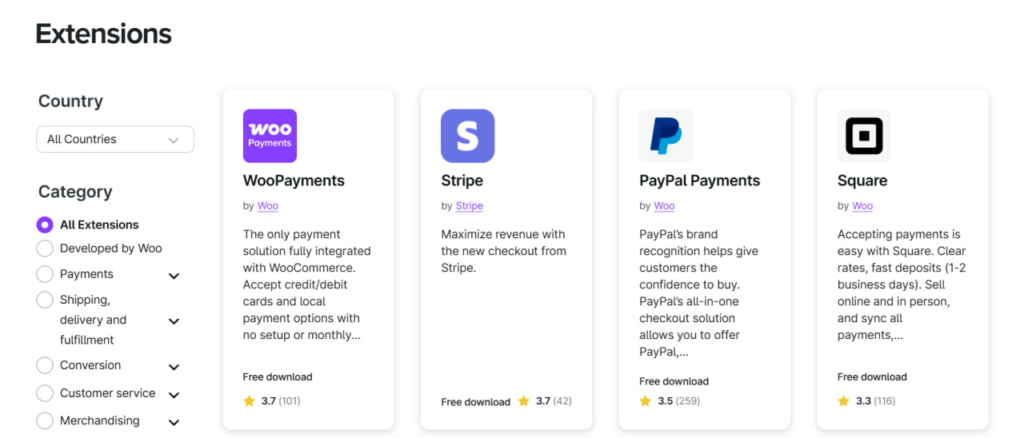More and more people prefer online shopping over the traditional way. It’s faster and more convenient. So, many brands are focusing on digital sales and e-shop solutions.
Using an open-source platform might be the best approach in this case. It allows you to customize everything to your needs. We want to tell you more about how these platforms work. Keep reading to learn about top e-shop free solutions!
All about Open Source E-shop Solutions
Let’s start with the whole concept of open-source e-shop solutions. The source code of these platforms is freely available for modification and customization. You can use and expand them without licensing fees.
The main benefits of using open-source alternatives are the control and flexibility you get. You are not restricted by any vendors. Also, they usually have many plugins and extensions that you can add.
Plus, these platforms receive the support of developers and users who contribute to improvements and troubleshooting.
Not to mention the high transparency level. You can easily audit and enhance security measures with access to code.
However, there are some challenges to consider with these solutions, like
- Need for technical expertise;
- Hosting and maintenance costs;
- Risk of outdated plugins or improper configurations.
How Does Open-Source E-commerce Work?
You already understand that open source e-shop solutions give you more freedom and control. How do they work exactly?
First, you pick the hosting provider and install the platform you prefer. We will talk about some top alternatives later.
Then, you get to access the source code which allows you to adjust
- Themes;
- Plugins;
- Core functionalities, etc.
Also, you can use the built-in tools to add products, track inventory, and set up payment gateways.
It’s important to secure customer data and implement SSL certificates. Plus, don’t forget about compliance with data protection regulations.
Most of these platforms come with SEO tools and marketing integrations. So, you have to focus on maximizing engagement. For example, try to pay more attention to your email marketing effectiveness and sales strategy.
Top 6 Free E-shop Solutions
We covered the basics of open-source e-shop solutions. They can offer you high flexibility and community support. Now, you probably want to know about the actual platforms you can use.
So, we gathered the best free platforms to try out. Check them out and maybe you’ll find your match.
Magento

The first alternative worth your attention is Magento. It has an extensive feature set and many customization capabilities that can help you grow your business.
Some of its main functionalities are
- Wide catalog management;
- Efficient order control;
- Customer management tools;
- Advanced reporting and analytics;
- Multi-store capabilities, etc.
Plus, you get access to more than 4000 extensions through the Adobe marketplace.

Magento can also offer you an intuitive Page Builder. It has different pre-designed templates and scheduling mechanisms to help you with content management.
This platform has a strong admin panel as well that lets you
- Easily update items and prices in bulk;
- Create full reports;
- Assign user roles and permissions.
Woocommerce

The next e-shop solution you can try is Woocommerce. It is a strong platform designed for WordPress that already powers millions of businesses.
You can sell everything from simple products to complex bundles with its help. It has many additional extensions that allow for subscription-based services, booking management, and more.

Woocommerce allows you to customize your store without extensive coding knowledge. You can use its Block Themes functionality to modify the layout easily.
Also, it makes it easier to promote your shop through
- Social media integrations;
- Google shopping;
- Third-party marketplaces.
You can automate essential marketing tasks to improve client interactions. For instance, you can automatically follow up with people who leave products in their carts. Also, it allows you to send targeted messages and reward loyal customers.
OpenCart
OpenCart can make your shop launch quick and simple. You’ll have access to unlimited free downloads and tons of features with no hidden costs.
This platform has a large collection of modules and themes to create a customized store. You’ll have an advanced admin panel that displays
- Total orders;
- Sales analytics;
- Customer activity, and more.
You can control multiple stores here at once and adjust the settings easily.

It offers a flexible product management system that allows you to create different item variations. Also, you can use its integrated affiliate system to set commission rates and provide flexible payout options.
Also, OpenCart has powerful marketing tools that can help you increase conversions through discounts and special offers. Not to mention its review and rating system that encourages your clients to interact more.
Here are some other features that can improve your clients’ experience on this platform:
- Customizable search filters;
- Automatic currency updates;
- Support for 40+ languages;
- Unlimited categories, etc.
Plus, OpenCart will provide you with detailed reports that cover sales and purchasing trends. And you can use thousands of extensions to grow your store’s functionality.
NopCommerce
Another e-shop solution you can try is nopCommerce. It’s a completely free alternative that offers many customization opportunities. You’ll have access to a dedicated support team and an active community that is always ready to help.
This platform supports different types of businesses. It can offer you
- Multi-store capabilities;
- Advanced SEO tools;
- Marketing automation;
- Multi-currency supports;
- Global payment integrations, and more.
You can create unlimited product attributes and variations with nopCommerce. Also, it offers advanced stock and inventory control mechanisms. You can manage everything through a single admin panel with shared catalog data and customer access control.
It has flexible pricing options and diverse promotion tools, like
- Individual reward points systems;
- Cross- and up-selling;
- Discount options;
- Automated email campaigns;
- Content marketing integrations, etc.
Plus, it has a big plugin marketplace for different cases. You can even connect it to various third-party platforms.
Ecwid
The next option you may consider is Ecwid. It allows you to build a customizable store without any coding experience. You can easily integrate it into any website or social media platform.
Ecwid offers hundreds of free templates that are suitable for any business type. You can get a free company.site domain or connect your own. Plus, you can add their “Buy Now” button to any page and turn it into a sales channel.
You’ll get access to expert video lessons through Ecwid Academy to help you run your store. Plus, you can find valuable marketing tips in their Help Center available in 5 languages.
You can activate a subscription-based model here. It allows you to use the following functionalities:
- Product refills;
- Subscription boxes;
- Membership sales, etc.
Also, it can offer you smart inventory management mechanisms and strong reporting capabilities.
The last thing we want to highlight about Ecwid is its Lightspeed Payments which include
- Popular payment methods and subscriptions;
- Secure checkout options;
- Detailed payment reports.
Prestashop
Prestashop is another great e-shop solution you can try. It gives you complete ownership of your business and its data.
This platform offers thousands of modules and themes to make your store unique. It has various instruments that can help you deliver a positive customer experience, like
- SEO tools;
- Marketing automation;
- Individual design elements, etc.
Also, Prestashop provides a simple Site Builder. You can easily design a professional-looking site that matches the style of your brand.
You can add and manage thousands of products and categories. Each product listing can include
- Images,
- Descriptions,
- Stock levels,
- Unique identifiers.
Plus, you may integrate different payment gateways and shipping methods for more convenience.
Another thing we want to mention is its multi-store functionality. You can manage all of them from one dashboard by setting different languages and currencies.
How to Pick the Best E-shop Solution?
We highlighted the most popular e-shop solutions available. You may still be wondering which one is more suitable for your exact needs. There are many factors to evaluate before making a decision.
First, you need to outline your business requirements, including
- Product range;
- Scalability;
- Customization needs;
- Payment methods, etc.
Next, compare them against the features of the platform. Focus on those that offer simple dashboards and a mobile-friendly design. Also, evaluate the multi-channel capabilities and available SEO tools.
Another point to consider is the level of support and security. Make sure the platform supports
- SSL certificates;
- Regular updates;
- GDPR compliance.
Next, you have to weigh the hosting options. Some of these solutions require self-hosting and others offer cloud alternatives. So, check if you’ll need to pay for a separate plan.
Last, we recommend testing the platform’s demo version or setting up a trial store. This allows you to experience its usability and confirm it matches all your needs.
Conclusion
Digital shopping is at its peak now. So, selling online is your big chance for success. One of the best ways to enter this domain is through open-source e-shop solutions.
These alternatives give you more control and flexibility. You get access to different tools, templates, and community support. Yet, make sure to check the hosting options and security features before picking a platform.
Hope that you found something useful! Check out the solutions we described and start selling online.
